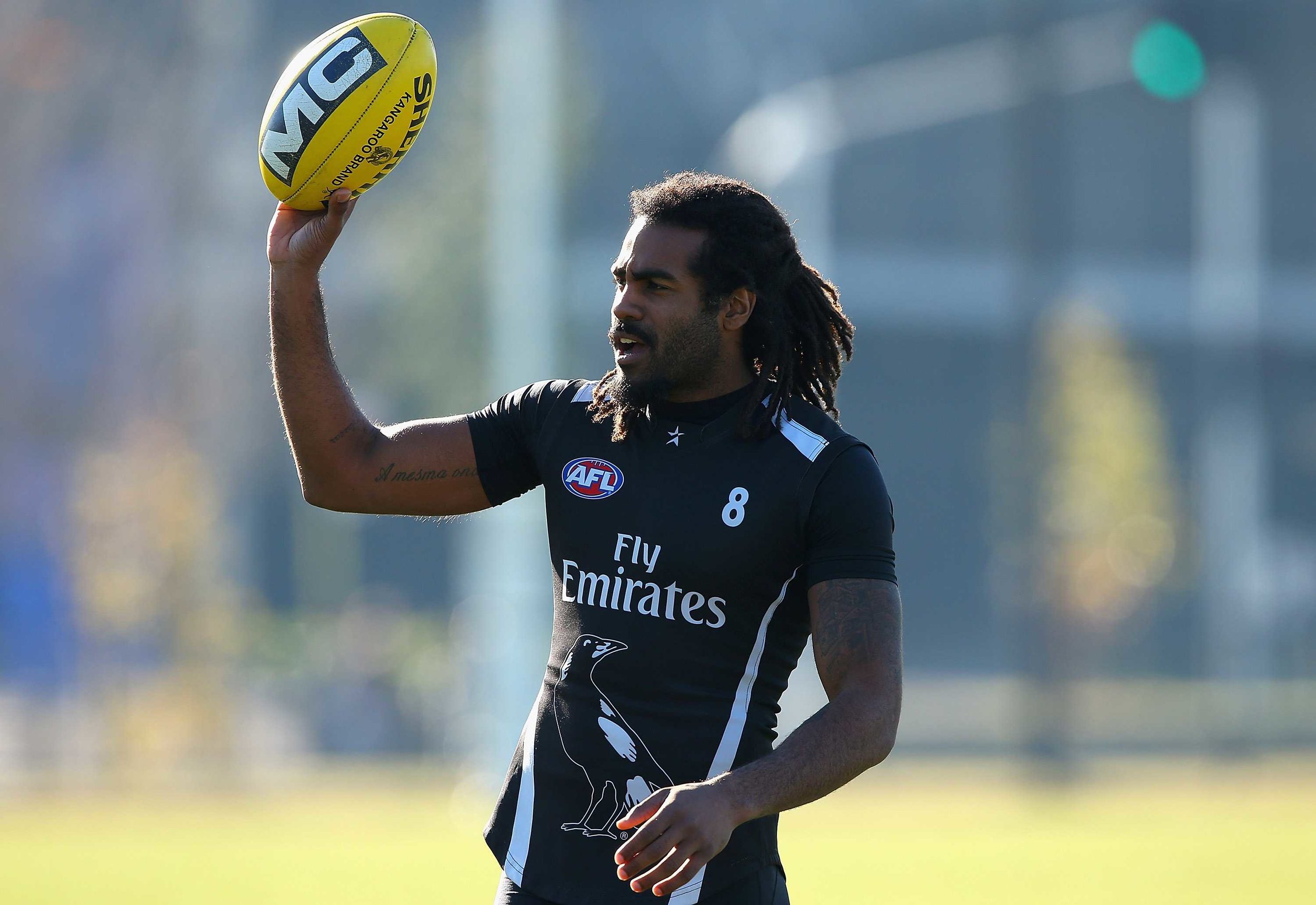Aussie rules: Still a white man's game
 Heritier Lumumba is a tired man.
Heritier Lumumba is a tired man.
The former Collingwood player, centre of the SBS documentary 'Fair Game', says making the film, detailing his experiences with racism at the AFL club, was a harrowing and emotionally exhausting experience.
The film came about after the 30-year-old former Magpie met New York filmmaker Jeff Daniels for coffee six years ago, after reaching out to commend him on a previous film he had made on Chinese Uighur minority rights activist, Rebiya Kadeer.
The relationship bloomed into a creative collaboration that has been both cathartic and painful for the former Pies player. In the documentary Lumumba details his experiences as a young black man growing up in Australia, his controversial stint at Collingwood, trying to find a place in a "white football culture" and reconnecting with his Brazilian roots.
Lumumba, formerly known as Harry O'Brien, reclaimed his Congolese birth name in 2013. It translates into the 'Prince Who is Gifted'. It was in stark contrast to the nickname used by fellow teammates - who referred to him as 'chimp' during his nine-year career at the club between 2005 and 2014.
In the film, Lumumba's mother cries recounting the story, but Lumumba says it followed a pattern from his childhood of accepting and even repeating racial epithets, like 'boong' and 'coon' as the price to fit in.
"You develop different ways to deal with it to cope with it... I allowed it because it was part of their culture," Lumumba said.
"YOU WANT TO FEEL THAT SENSE OF INCLUSION. YOU'LL DO ANYTHING REALLY TO SHOW THAT YOU ARE NOT AN ALIEN. YOU ARE NORMAL, YOU ARE A HUMAN BEING."
It was only when Lumumba who got his start at the club as an 18-year-old, began to challenge the racism he experienced, with high profile clashes with his then boss and club president Eddie McGuire and coach Nathan Buckley, that things began to fall apart for the 2010 premiership player.
After publicly criticising McGuire’s 2013 radio comments associating Swans legend Adam Goodes with King Kong, Lumumba said the experience permanently soured his relationship with the club.
"That was the beginning of the fracturing of my relationship with Collingwood."
Despite a flurry of mediation and public patch ups, the experience precipitated his departure from Collingwood in 2014 after 199 games at the club.
"PEOPLE MADE IT VERY CLEAR I HAD DONE THE WRONG THING."
Lumumba, who retired last year after joining the Demons, says the devastating emotional impact of racism was often internalised by minorities who were automatically labelled troublemakers and gaslighted for speaking out.
It was compounded by the fear black players experienced of risking their careers by challenging employers.
"I remember being terrified of losing the thing that gave me a sense of inclusion and freedom," Lumumba said.
Born to a Brazilian mother and Congolese father in Rio de Janeiro in Brazil, Lumumba's parents separated when he was a child. His mother later emigrated to Perth and married an Australian man. In the documentary he also speaks about the pain of losing his supportive stepfather to suicide and the racial dysphoria of growing up in a mixed family.
He recalls feeling self conscious in his black skin and often worried about holding his white sister's hand on the street.
"BEING BLACK IN AUSTRALIA YOU CAN'T HIDE THAT FROM ANYONE. WHEN YOU WALK OUT ON THE STREET, BANG - STRAIGHT AWAY YOU'RE TREATED WITH SUSPICION."
As a child, Lumumba coped by losing himself in sport. He was inspired by the fast and furious brand of football practiced by Indigenous players.
"The only time I could see a black person excel was in sport."
"It was beautiful, it was fast... it was slick. It was like a dance. That's how I felt I wanted to express myself."
Fair Game will premiere at 9.45pm on Sunday, September 3, on SBS and is available on SBS On Demand from Sunday 27 August.
